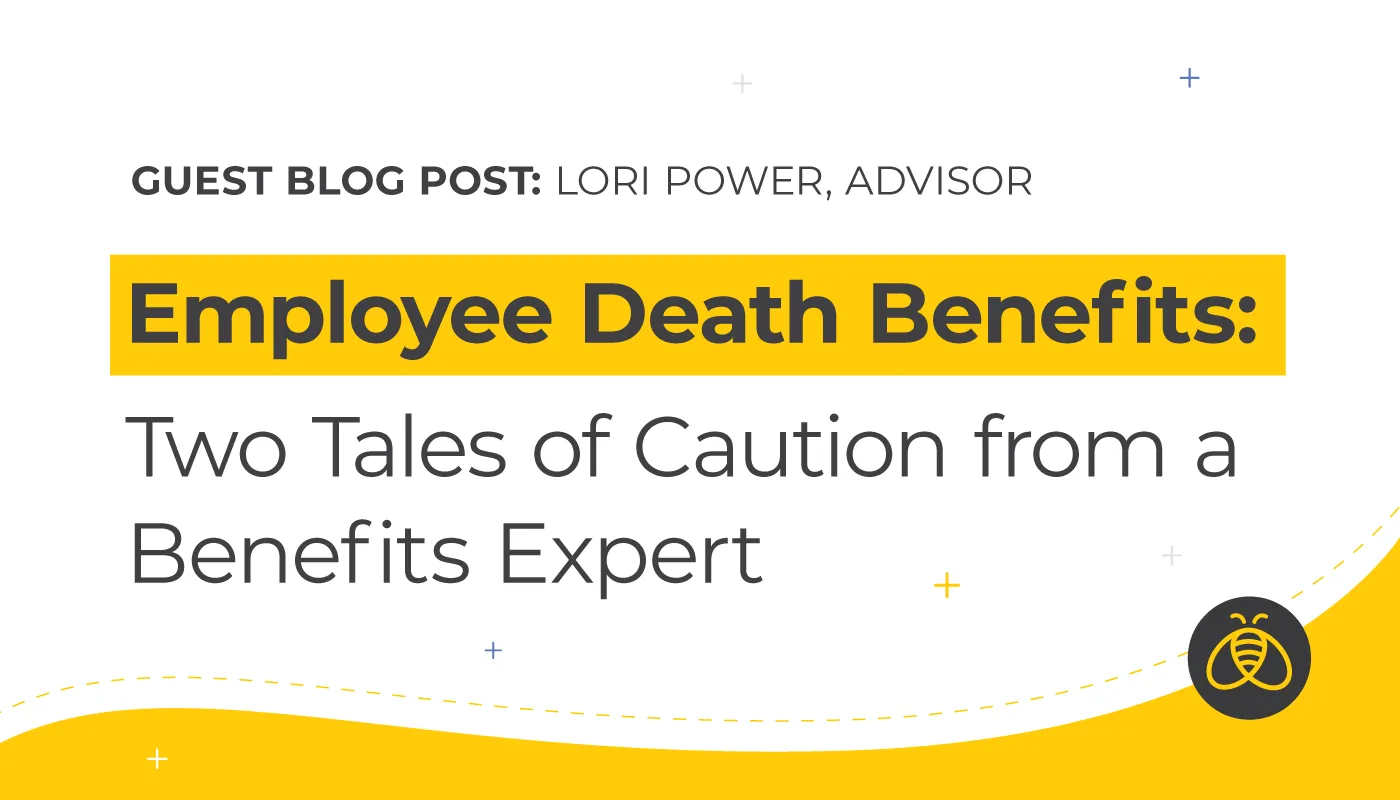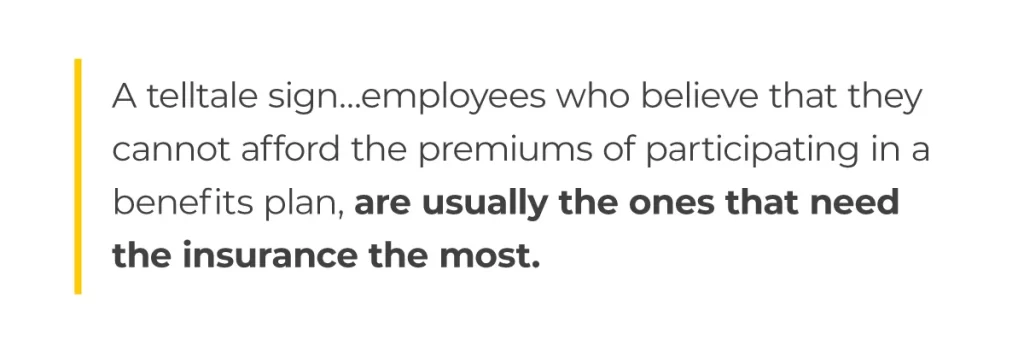Employee Death Benefits: Two Tales of Caution from a Benefits Expert
By: Benefits by Design | Tuesday July 12, 2022
Updated : Tuesday November 14, 2023
This is a guest blog post by Lori Power, GBA—Founder MP Benefits Inc.
DEATH IS LOSS and then DEATH BECOMES TRAGIC when the bereaved are unprepared and unprotected. Loved ones are also left to sort out the death benefits. Employers can help by ensuring their employee beneficiaries are kept up-to-date.
What is a Life Event and Why It’s Important to Update Your Information?
The Employee Death Benefits Disconnect
Very often there can be a disconnect, especially in a smaller corporation, between the employer and their employees when it comes to insurance needs.
The owner is used to mitigating risk to protect the future of their company, so it is understandable that they would expect the same due diligence from their staff members. But in reality, employees seldom seem to consider their own risk.
In fact, over the length of my career as a benefit consultant, this conversation on disconnect is one of the most prevalent. Employers expect that the employees will have completed a financial plan of some kind, with a Will, insurance, and protection for their family, but the reality is they don’t.
As a for instance on the disconnect, LIMRA’s 2022 Insurance Barometer Study shows that less than half of employers now offer disability coverage as part of their package (approximately 48%). This means that staff, who are already living pay cheque to pay cheque, must rely upon their personal savings first and then extended family members to survive the loss of income.
The same it seems is true when an employee dies. Outside perhaps insurance that they attach to a mortgage or a loan, their personal home and auto, the average worker doesn’t seem to take the time to protect their own number one asset—themselves. The death benefits from a company life insurance policy can help the family, as well as the employee’s peace of mind.
When a Company Employee Passes Away
The following is a true event of an employee who had been off due to a terminal illness that had taken its course when there was no disability in place either personally or through the employer. This was the death of a spouse, a mother, a sister, a daughter. By the time of her death, due to the impact of having to personally fund the loss of income, the bereaved then had to take care of the deceased last expenses: funeral costs, debts, and taxes. And they had to pay all of this from a flat $25,000 benefit payment. This is when death becomes cruel.
The tax collector has no empathy, no emotion, nor a sympathetic ear to listen and understand that this may put the family under financial risk.
Yes, employers and those in the insurance world may agree that this family should have foreseen this risk. SHOULD HAVE protected the family financially. But the reality is that they didn’t, and they are not alone.

Group life insurance, whether a percentage of salary or a flat benefit amount, is owned by the corporation offering this to their employees. A benefit plan has many advantages, not the least of which is the ability to offer insured coverage to those individuals who would otherwise not be able to obtain an individual policy due to health or lifestyle circumstances.
[FREE download] Employee audit checklist for your group insurance plan
Confirm Where Your Death Benefit is Going
As with all contracts, it is vital to know what you have.
In this next true situation, a staff member whose only form of life insurance was what was available under the group policy, named three beneficiaries for the proceeds: their spouse and two children, (one under 18).
Upon the member’s death the Will disputed the beneficiaries. This would typically not be an issue as a named beneficiary takes precedence, usually, over the Will. The money would be paid from the group policy in accordance with the contract. However, no trustee form was completed for the minor. In the end, all three beneficiaries had to complete the life claim form, which slowed the process, leaving room for errors in its completion.
The tragedy was two-fold. The only insurance was the small amount available under the group policy. Due to a lack of trustee appointment, the spouse had to obtain a legal declaration affirming parentage. They also had to redo the life claim report, and provide a copy of the minor’s birth certificate.
Now, in addition to suffering the loss of a loved one, the bereaved is burdened with taxes and bills, as well as administrative, financial, and legal obligations.
The message for employers is to bridge the disconnect and not discount the value of the Group Life benefit. It is also important to not neglect the simple paperwork associated with ‘getting it right the first time’.


